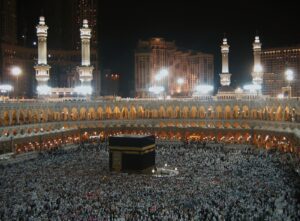Thiruvananthapuram: Covid-19, the pandemic that struck the world in 2019 and which claimed millions of lives have inspired Nobel Prize winning author Orhan Pamuk to come out with a novel “Nights of Plague”.
Come September and book lovers in India are in for a major surprise. Pamuk, winner of the 2006 Nobel Prize for literature will hit bookshelves across the sub-continent with his latest work “Nights of Plague”, which if the teasers are to be believed, would generate a lot of heat and dust.
Pamuk (70), is coming back with a story that is believed to have taken place in 1900 in Levant , the imaginary island of Mingheria, the 29th State of Ottoman Empire, located in the eastern Mediterranean between Crete and Cyprus. Half the population is Muslim, the other half are Orthodox Greeks, and tension is high between the two. When a plague arrives-brought either by Muslim pilgrims returning from Mecca or by merchant vessels coming from Alexandria-the island revolts.
To stop the epidemic, Sultan of Ottoman, Abdul Hamid II sends his most accomplished quarantine expert to the island-an Orthodox Christian. Some of the Muslims, including followers of a popular religious sect and its leader Sheikh Hamdullah, refuse to take precautions or respect the quarantine. And then a murder occurs.
“As the plague continues its rapid spread, the Sultan sends a second doctor to the island, this time a Muslim, and strict quarantine measures are declared. But the incompetence of the island’s governor and local administration and the people’s refusal to respect the bans doom the quarantine to failure, and the death count continues to rise. Faced with the danger that the plague might spread to the West and to Istanbul, the Sultan bows to international pressure and allows foreign and Ottoman warships to blockade the island. Now the people of Mingheria are on their own, and they must find a way to defeat the plague themselves,” said Peter Modoli, Divisional Lead, Penguin, the publishers who bring Pamuk to the readers.
Similarities with contemporary world is likely to set literary debates ablaze with arguments and counter arguments about the post-modern Pamuk’s new initiative, says Modoli.
The scenario is somewhat similar to the Covid-19 pandemic that struck the globe in 2019 and turned the world upside down from which it is yet to recover.





